
CERTIFICATE IN ASSISTANT ELECTRICIAN
Completing a course in electrician training can provide individuals with the skills and knowledge necessary to work as an electrician in various settings, including residential…
Development and Training is what we’re all about
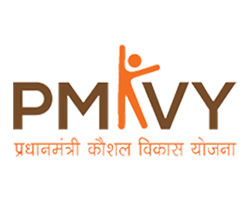
1. Background
With Indian economy growing in scale with various enabling policies and programmes being put in place, the need for skilled workers in different sectors was a consequential requirement. Realizing the emerging need, Ministry of Skill Development and Entrepreneurship (MSDE) was established in 2014 with an overall objective to promote skilling and entrepreneurship development in India.
1.1 Journey of PMKVY
1.1.1. In 2015, MSDE launched its flagship scheme, PMKVY to encourage and promote skill development in the country by providing free short duration skill training and incentivizing youths for skill certification.
1.1.2. After successful implementation of PMKVY between 2015 and 2016 and learnings emerging, the second version of PMKVY was launched in 2016 as PMKVY 2.0 which was implemented between 2016 and 2020. PMKVY 2.0 focussed on scaling up the intervention in terms of sectors covered, geographies and greater alignment with other missions/ programs of Government of India such as ‘Make in India’, ‘Digital India’ and ‘Swachh Bharat Mission’. To extend skilling initiatives to the migrant workers, a sub scheme viz. “Garib Kalyan Rozgar Abhiyan” was also implemented during the period.
1.1.3. Taking the skilling agenda forward intertwined with past learnings, PMKVY 3.0 was
launched and implemented between 2020 and 2022. PMKVY 3.0 was a demanddriven scheme with bottom-up approach and reflected a paradigm change in implementation of training, with adoption of more decentralized institutional mechanism including District Skill Committees for identifying local skilling demands.
a. Customised Crash Course Programme for COVID Warriors was launched in 2021 under PMKVY 3.0 to meet the deficit skilled COVID warriors and augmentation of available healthcare services
b. Skill Hub Initiative was also launched under PMKVY 3.0 with a focus on integration of vocational education with general education as envisioned in the
‘National Education Policy (NEP) 2020’ and as an expansion of skilling programmes in education ecosystem in consultation with Ministry of Education, and other Ministry/Departments through ‘Skill Hubs’.
Objectives of PMKVY 4.0
PMKVY 4.0 will be implemented between 2022-26 with a strong emphasis on
making the programme candidate centric by creating an enabling ecosystem to meet the aspirations and emerging sectoral needs.
a. To promote an enabling ecosystem for youths to get skilled and choose a career path.
b. To create a platform for both demand and supply side by making the existing skilling eco-system more flexible, swift, and geared to meet the emerging demand.
c. To effectively meet the demand and supply through a process overhauling by promoting technology-driven ecosystem, innovative financing, and digitalization
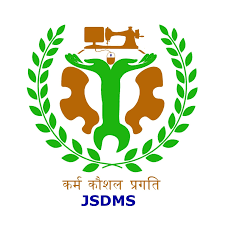
Jharkhand Skill Development Mission Society (JSDMS) is the nodal agency for implementing, monitoring and coordinating the Skill Development & Entrepreneurship activities initiated by the Central Govt. and implemented by the State Govt. to leverage employability. JSDMS implements various skill development schemes in the State of Jharkhand for skilling of youth. It also acts as a catalyst in strengthening Skill Eco System of Jharkhand. Ministry of Skill Development & Entrepreneurship (MSDE) has allocated the total STT target for Special Projects COVID Training (Centrally Sponsored State Managed Component – CSSM) under Pradhan Mantri Kaushal Vikas Yojana 3.0
About Jharkhand Skill Development Mission Society (“JSDMS”)
Jharkhand Skill Development Mission Society (“JSDMS”) was registered on 1 October, 2013 under the
Societies Registration Act, 1860 to function as an autonomous organization under Department of
Planning and Development, Government of Jharkhand. Through a Government of Jharkhand
notification dated 18 June, 2015, JSDMS was made an autonomous body under Department of Labour,
Employment, Training & Skill Development, Government of Jharkhand.
The primary objectives of JSDMS are:
development sector;
Branch Name and Address:
S. No. | State | Cluster | Branch Name | Type Of Center | Branch Address |
1 | Jharkhand | Ranchi | Jsdm Baragora | Saksham | Dhara enterprises, Patpur, PWD road, Infront of bahragora govt. bus stand,Bahragora,Jharkhand Pin Code-832101 |
2 | Jharkhand | Ranchi | Jsdm Koderma | Mega | Namah shivay complex. Ranchi Patna road, Maharana pratap chowk, Ward no 7, Jhumari Talaiya,Koderma,Jharkhand Pin Code-825409 |
3 | Jharkhand | Ranchi | Jsdm Sindri | Saksham | C/o jafar Eqbal G.T Road Amarpur,Rangdih more,Govindpur (Sindari),Jharkhand Pin Code-828109 |
4 | Jharkhand | Ranchi | JSDM Dhanbad | Mega | At Puna mahto seva sansthan campus, At- Ladi Dumar, po- Jhagrahi, ps- Barora, katras Bagmara Rd. Dist- Dhanbad |
Mega Skill Centers:
Mega Skill Center Project launched by Jharkhand Skill Development Mission Society (JSDMS) which aims at developing the State level agenda for skilling and implementing skill development programs in the state of Jharkhand.
The Mega Skill Centres are focused at providing a platform to the people who have not been able to complete their education, are unemployed or lack skills as per the market requirement. These Mega Skill Centres are state of the art training centres, spread in a vast area of 25000 Sqft. with classrooms, lunchrooms, recreational and hostel facilities. Strongly believing in the fact that practical knowledge is equally important, the centres have practical labs too. They are centrally located at the epicentre making it easy for people in and around the area to access the centre without much of effort. The smart classrooms and well-equipped computer labs ensure that the trainees get well versed with the changing technology.
The Mega Skill Centres focus on:
Target Group:
Saksham Jharkhand Kaushal Vikas Yojana (SJKVY)
The scheme will be implemented on pilot basis across the state of Jharkhand in the year 2015-16 that aims to provide quality skills training aligned with the National Skills Qualification Framework (NSQF) and responsive to industry needs. The scheme aims at employment of 70% of successful trainees through placement-linked and self-employment mechanism. Payment terms and schedule shall be guided by the Common Norms notified by the Ministry of Skill Development and Entrepreneurship dated 15th July, 2015.
Following are the key elements of the scheme:
(i) Scheme Beneficiaries
(ii) Sectors and Trade covered under the scheme
(iii) Key Stakeholders
Following are the key stakeholders in regard to the scheme implementation process
(iv) Institutional Arrangement
The institutional arrangement for implementation of the pilot phase of the scheme is laid out below:
Role Of Mahendra Skills:
Launch of state-of-the-art Mega and SJKVY Skill Centers in different locations of Jharkhand for providing classroom training and residential facilities
Opening of these Mega Skill Centres has not only paved a golden path of skilling for the youth but, also given them confidence that by skilling, they can have a bright future, get employed and provide a sustainable livelihood to their family and the future generations. By associating with this project we have already taken a leap towards the transformation of India into the skill capital of the world which translates into the goals laid down by our Honourable Prime Minister Shri Narendra Modi.

Deen Dayal Upadhyaya Grameen Kaushalya Yojana (DDU-GKY)
Vision: Transform rural poor youth into an economically independent and globally relevant workforce
The Ministry of Rural Development (MoRD) announced the Deen Dayal Upadhyaya Grameen Kaushalya Yojana (DDU-GKY) Antyodaya Diwas, on 25th September 2014. DDU-GKY is a part of the National Rural Livelihood Mission (NRLM), tasked with the dual objectives of adding diversity to the incomes of rural poor families and cater to the career aspirations of rural youth.
DDU-GKY is uniquely focused on rural youth between the ages of 15 and 35 years from poor families. As a part of the Skill India campaign, it plays an instrumental role in supporting the social and economic programs of the government like the Make In India, Digital India, Smart Cities and Start-Up India, Stand-Up India campaigns. Over 180 million or 69% of the country’s youth population between the ages of 18 and 34 years, live in its rural areas. Of these, the bottom of the pyramid youth from poor families with no or marginal employment number about 55 million.
The National Policy for Skill Development & Entrepreneurship 2015 has identified a skills gap of 109.73 million in 24 key sectors by the year 2022. This number cannot be achieved without addressing the BoP 55 million from rural India. Also, a FICCI and Ernst – Young study published in 2013 identified a shortage of over 47 million skilled workers across the globe by 2020.
DDU-GKY takes pride in its partners and their ability to add value. Innovation from partners is encouraged to build scale and capacity… its unique implementation structure involves partners, who are by nature, committed to changing lives and are experts in their areas, they form a part of the Skilling Ecosystem integrated by DDU-GKY. Partners are supported through investment, capacity building, strategies for retention, linkages to international placement and technology support for training purposes. DDU-GKY is present in 27 States and 04 UTs. Currently 1891 projects being implemented with 877 partners, in more than 616 trades from 37 industry sectors. Over 13.88 Lakh candidates have been trained and over 8.24 Lakh candidates have been placed in jobs as on 28th February, 2023.
Centre | DDUGKY |
Centre Name | DDUGKY Centre BKT Lucknow |
Address | GCRG College Parvatpur Chauraha Bakshi Ka Talab Lucknow |
| |
Course Name | Total Duration (In hrs.) |
Retail Sales Associate | 640 |
Self Employed Tailor | 775 |

Uttar Pradesh being the largest populated state in the country, the target for skill development for the 12th plan has been fixed at 8 million by Uttar Pradesh Skill Development Mission. More than 25 lakh youth enter the labour force every year in the state without proper skills. In addition, there is a backlog. The State Rural Livelihood mission is already engaged in enabling livelihood options to a large numbers through Self Employment and SHGs, irrespective of age and literacy levels.
Therefore, State Skill Development Mission would focus on providing wage employment linked skills and training to children who drop out of the education stream between class 5th and 12th, who number approximately 20 lakh per year, with more emphasis on youth who have qualified class 8th as they can be trained in many more sector thus enhancing their employability. All persons between the ages of 14 to 35, preferably 8th pass, who need skill development training to improve their earning capacities and level, shall be eligible for the skill development training. People who are 5th pass and above will also be considered for courses which have a lesser eligibility requirement. Skill development will also be extended to unskilled/semi-skilled workers seeking to enhance their skill levels.
The program shall target Women, SC/STs, and other marginalized sections of society. The specific provisions for different categories of people in schemes such as NRLM, MSDP, BOCW, BADP, SCA to SCSP etc. shall be adhered. The funds available under these schemes will not only be used for skill development but also for setting up infrastructure for trainings of these groups. Overall, the program shall have a target of 40% for women, 21% for SC/STs and 15% for minorities across all the trainings provided in the state through the Mission.

Recogonition of Prior Learning commonly known as RPL largely refers to an assessment process used to evaluate a person’s existing skill sets, knowledge and experience gained either by formal, non-formal or informal learning. RPL under Pradhan Mantri Kaushal Vikas Yojana (PMKVY) 2016-20 primarily has threefold objectives…
![]()
It aims to align the competencies of the un-regulated workforce of the country to the standardized National Skills Qualification Framework (NSQF),
![]()
To enhance the employability opportunities of an individual as well as provide alternative routes to higher education and
![]()
To provide opportunities for reducing inequalities based on privileging certain forms of knowledge over others.
The proposing entity under RPL is referred to as the Project Implementing Agency (PIA). Additionally, individual entities may be on-boarded by the PIA for conduct for various on-ground activities such as mobilization (Mobilization Agency), counselling, pre-screening and orientation delivery (RPL Facilitator Organization). RPL extends to 2000+ job roles aligned to NSQF provided these are QRC and NSQC approved.
Corporate Social Responsibility (CSR) is a concept whereby companies integrate social and environmental concerns in their business operations and in their interaction with their stakeholders on a voluntary basis.
In the present Indian scenario, skilling is emerging as an important agenda towards developing the nation. With the rapid growth in every sector, there has emerged the need for skilled manpower to accelerate the development process. Therefore, to fulfill the growing demand for skilled workforce and boost the economy, the CSR wings of corporate entities are coming up to skill the youth, through direct involvement or collaboration with the non-profits.
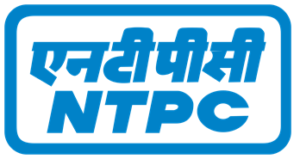

THE NABARD ODOP project is a flagship program of NABARD aimed at promoting rural entrepreneurship and enhancing the rural economy by identifying and promoting one unique product from each district of India and providing support for its production, marketing, and skill development. NABARD has launched various skill development initiatives, including training programs, workshops, and capacity building programs, to enhance the skills of rural entrepreneurs and make them more competitive. It provides financial assistance to state governments, NGOs, and other agencies for conducting skill development programs in various areas such as product design, manufacturing techniques, quality control, marketing, and packaging. NABARD has also established Common Facility Centers (CFCs) in various districts to provide common infrastructure facilities to rural entrepreneurs for product development, testing, and marketing. The CFCs also provide training facilities for skill development. NABARD has launched an e-marketplace called ODOP Marketplace to promote the sale of ODOP products online, providing a platform for rural entrepreneurs to showcase their products and connect with potential buyers. NABARD’s ODOP project contributes to the development of a strong rural economy and promotes inclusive growth.
NABARD’s MCID (Micro Enterprise Development Programme) project is focused on promoting micro-enterprises in rural areas and enhancing the livelihood opportunities of rural people. NABARD has launched various skill development initiatives as part of the project to enhance the skills of rural entrepreneurs and make them more competitive. These initiatives include training programs, workshops, and capacity building programs in various areas such as product design, manufacturing techniques, quality control, marketing, and packaging. Financial assistance is provided to state governments, NGOs, and other agencies for conducting skill development programs under the project. NABARD has also established Micro Enterprise Development Centers (MEDCs) in various districts to provide technical assistance and support to micro-enterprises. An e-marketplace called NABFINS e-Marketplace has also been launched to promote the sale of products manufactured by micro-enterprises. Overall, NABARD’s MCID project aims to promote micro-enterprises, enhance the skills of rural entrepreneurs, and contribute to the development of a strong rural economy.
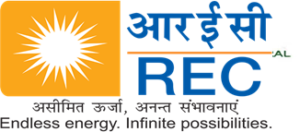
REC Limited is a public sector company that promotes rural electrification projects in India and is also actively involved in promoting skill development initiatives. Its skill development programs aim to enhance the skills of rural youth and promote entrepreneurship in rural areas. The programs are implemented through partnerships with state governments, NGOs, and other agencies and provide training in areas such as solar energy, agriculture, healthcare, and construction. REC Limited provides financial assistance for conducting these programs and has also established training centers and Common Service Centers (CSCs) across the country. Through its initiatives, REC Limited contributes towards the development of a skilled and productive workforce to drive the country’s economic growth.
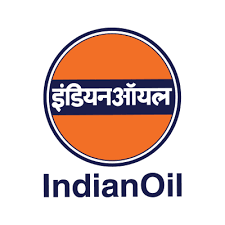
The theme of Pehle India Phir Oil is truly depicted through IndianOil Corporate Social Responsibility (CSR). IndianOil’s CSR is guided by its corporate vision of caring for the community and the environment. IndianOil believes that CSR is the continuing commitment to conduct its business activities ethically and contribute to the economic development while improving the quality of lives of the local community, especially in the vicinity of its establishments and the society at large. IndianOil, as India’s largest Energy PSE, has always been going beyond business priorities to align with national commitments. IndianOil has long standing CSR legacy, which started long before the CSR legislation under Companies Act 2013 came into effect. In the last 28 years, IndianOil has contributed Rs.3,347 crore towards various community development and CSR projects improving the quality of lives of societies/ communities primarily residing in the vicinity of our units/ installations. IndianOil’s Corporate Social Responsibility (CSR) thrust areas include ‘Safe drinking water and protection of water resources’, ‘Healthcare and sanitation’, ‘Education and employment-enhancing vocational skills’, ‘Rural development’, ‘Environment sustainability’, ‘Empowerment of women and socially/economically backward groups’, etc. IndianOil undertakes CSR activities across the country, from Leh in J&K in the North to the North-eastern States, to Gujarat in the West and Tamil Nadu/Kerala in the South.

Bosch Global Software Technologies Private Limited through the years has been devoted to the principles which uphold the Corporate Social Responsibility (CSR) charter.
Our vision outlined in the Social Responsibility charter is “Extending ‘Smart Solutions’ that create long lasting value to the society”
BGSW/CSR also invests in projects undertaken by the Bosch India Foundation which are holistic village development and skilling through Artisan Training Centers. Bosch India Foundation fosters holistic village development with a special focus on thrust areas such as economic development, health and infrastructure.
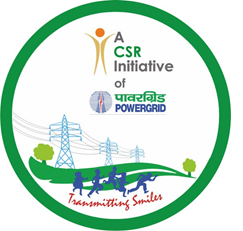
Power Grid skill development is crucial for professionals in the power sector to acquire the knowledge and expertise required to design, operate, maintain, and manage power systems. To tackle challenges such as climate change, ageing infrastructure, and evolving technologies, power grid skill development is critical.
The key areas of power grid skill development include electrical engineering, data analytics, cybersecurity, project management, and communication. Electrical engineering principles are essential to design and maintaining power systems effectively, including power systems analysis, power electronics, and power generation and distribution.
Data analytics is increasingly important in the power sector, enabling professionals to analyze large amounts of data, optimize power systems, identify trends, and predict future demand. Professionals need to have skills in data visualization, statistical analysis, and machine learning.
Cybersecurity is becoming more critical with the increasing use of digital technologies in power systems. Professionals need to understand cybersecurity principles and be able to implement effective security measures to protect power grids from cyber-attacks, data breaches, and other security threats.
Effective project management is crucial to ensure that power grid projects are completed on time, within budget, and to the required specifications. Professionals need skills in project planning, risk management, and stakeholder management.
Communication is critical in the power sector, as professionals need to communicate technical information to various stakeholders, including other engineers, project managers, government officials, and the general public.
In summary, power grid skill development is vital for professionals to stay up-to-date with the changing power sector and tackle industry challenges. Focusing on the key areas of electrical engineering, data analytics, cybersecurity, project management, and communication can help individuals and organizations succeed in this dynamic and challenging field.

Skill development projects are initiatives aimed at improving the skills and competencies of individuals to enhance their employability and productivity. These projects can be sponsored by the government, private organizations, or public-private partnerships.
In the context of a power generation company like Prayagraj Power Generation Company Ltd., a skill development project could focus on developing the technical and non-technical skills of its employees or the local community. For example, the company could provide training programs to its employees on the latest power generation technologies or safety procedures.
Alternatively, the company could sponsor skill development initiatives for the local community, especially those residing near its power generation facilities. This could involve training programs on technical skills related to power generation or non-technical skills such as communication, problem-solving, and leadership.
The ultimate goal of a skill development project is to improve the capabilities of individuals, which in turn can result in increased productivity, better job opportunities, and a positive impact on the local community.












A winner is someone who recognizes his God given talents works his tail off to develop them into skills and uses these skills to accomplish his goals. A skill is basically the learned ability to carry out a task with pre-determined results often within a stipulated time frame…
Mahendra Arcade, CP-9, Vijayant Khand, Gomti Nagar, Faizabad Road, Lucknow, PIN - 226010
+91 7706008020
Copyright @ 2023 Mahendra Ltd | All RIghts Reserved